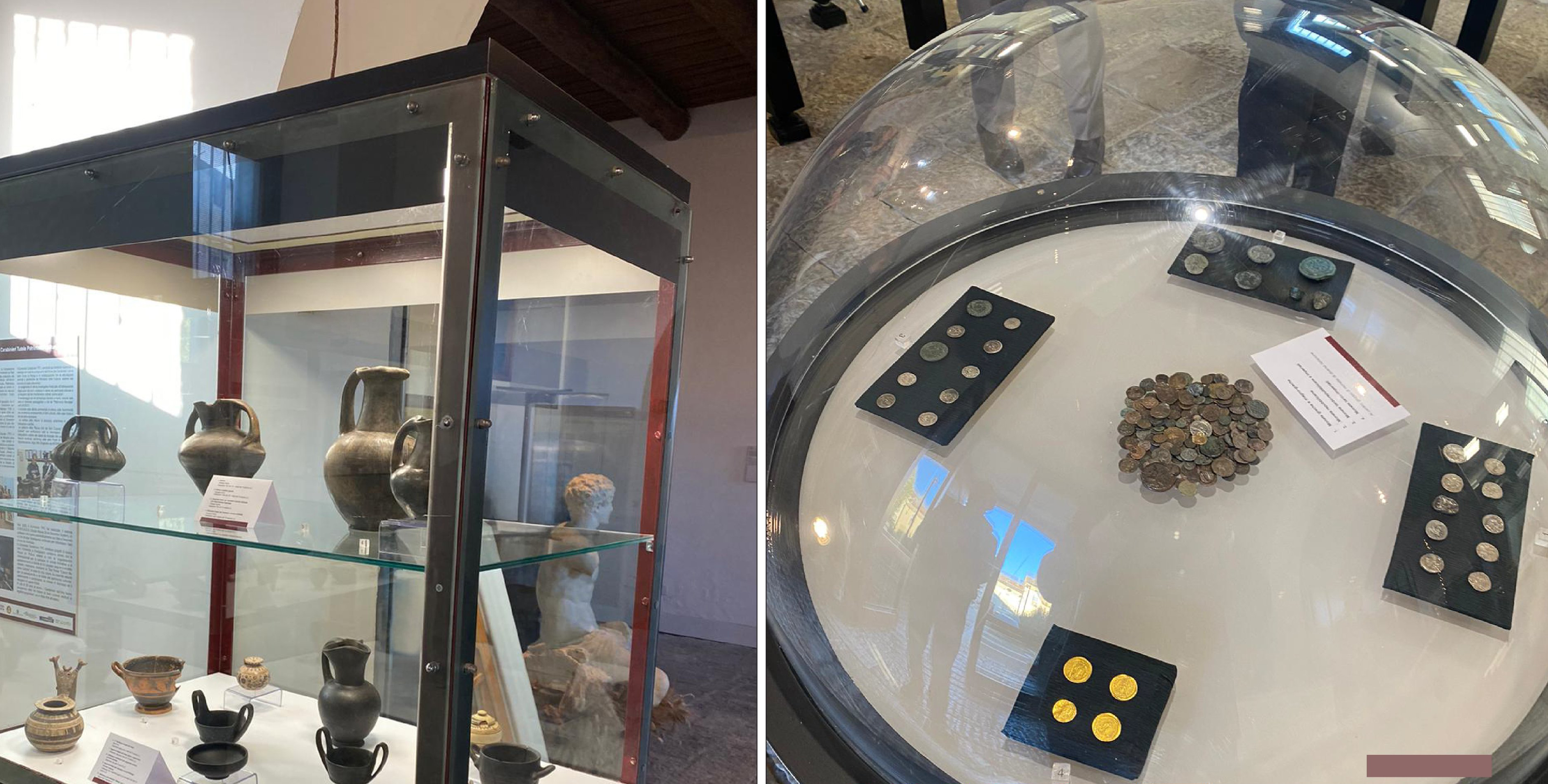
Precious archaeological vases and coins returned to Italian museum

The Italian authorities have recovered over 2,500 precious ancient coins, vases and small sculptures that had been illegally dug up and sold in Switzerland, the European Union Agency for Criminal Justice Cooperation (Eurojust) announced on Monday. Swiss cantonal police and the Zurich public prosecutor's office were involved in the extensive operation.
+ Get the most important news from Switzerland in your inbox
The treasures from the ancient city of Cales date from between the 3rd century BC and the 8th century AD. The newly recovered articles were officially presented on November 15 at the National Archaeological Museum of Santa Maria Capua Vetere, near Naples, according to Eurojust.
Eurojust helped the Italian authorities to carry out searches in Switzerland and to gather data on bank accounts and transfers in Belgium and the Netherlands, as well as information on online auction houses.
Dozen suspects arrested
A total of 43 suspects have been charged, four of whom were initially taken into custody. They are suspected of art fraud, including illegal excavations, selling the articles via auction houses and providing false certificates of authenticity. The value of the objects returned is estimated at around €2 million ($2.1 million).
The investigations were launched in 2022 in Italy. Their findings showed that archaeological treasures from the ancient Roman colony of Cales were being offered for sale by Swiss auction houses. The investigations also showed that ancient coins and pottery had been unearthed without authorisation.
In all, around 2,000 coins with no official certificate of provenance were found, along with more than 500 precious vases, sculptures and other pieces of ancient pottery. Dozens of metal detectors and other technical equipment for illegal excavations were also found.
Translated from French by DeepL/sb
This news story has been written and carefully fact-checked by an external editorial team. At SWI swissinfo.ch we select the most relevant news for an international audience and use automatic translation tools such as DeepL to translate it into English. Providing you with automatically translated news gives us the time to write more in-depth articles.
If you want to know more about how we work, have a look here, if you want to learn more about how we use technology, click here, and if you have feedback on this news story please write to english@swissinfo.ch.

In compliance with the JTI standards
More: SWI swissinfo.ch certified by the Journalism Trust Initiative




























You can find an overview of ongoing debates with our journalists here . Please join us!
If you want to start a conversation about a topic raised in this article or want to report factual errors, email us at english@swissinfo.ch.